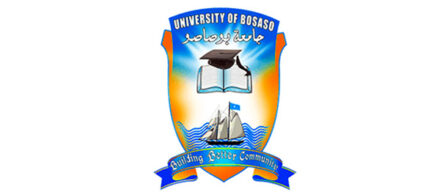FACULTY OF COMPUTER SCIENCE
November 14, 2023 2024-11-10 16:03FACULTY OF COMPUTER SCIENCE

Message from the Dean
Computer Science could be viewed as a discipline supported by the pillars – Hardware, Software, Systems Software and the Theory behind computing. Though started in the middle of 20th Century, this discipline has seen rapid changes and the fastest growth ever since mankind has started. Currently, Computing has become inseparable from Human life.
It has found a prominent place in our day to day life and we are struggling to cope with it. The mission of Computer Science & Engineering department is to impart knowledge to students and researchers to pave a solid foundation in problem solving using computers.
The faculty has been started in the year 2007 and as of today, it offers an undergraduate program B.Sc of computer science. The faculty is augmented with well qualified Faculty with rich teaching and industry experience and has adequate Laboratories. Apart from teaching, our faculty members have published research papers.
Some of our Alumni have grown to great heights and they constantly interact with the faculty. We strive to provide students the necessary ambience to embellish their knowledge and skills to achieve their long term goals.
Eng. Abdulkadir Aidid.
Computer science degrees deal with the theoretical foundations of information and computation, taking a scientific and practical approach to computation and its applications. Computation is defined as any type of calculation or use of computing technology that follows well-defined models (such as algorithms and protocols) in the practice of information processing (which in turn is defined as the use of these models to transform data in computers)
The main aim of this program is to create quality professionals and research fellows who can work in every sector of the world by implementing the technology of computer systems and software. The course provides students a great deal to enter the real world where ambitious Computer Science professionals can showcase their skills as Software Developer, System Integrator, and System Analyst among other job profiles.
✓ The admissions documents must be provided in English, Arabic or Somali. If they were not issued in one of these three languages, a translation is required.
✓ Higher Secondary School Leaving Certificate equivalent Diploma and your transcript of records.
✓ A subject-related higher education entrance qualification.
✓ Depending on your qualifications, you might have to meet additional requirements, such as successfully passing a university entrance examination.
A computer science undergraduate degree can open up a wide range of career opportunities in technology, software development, and related fields. Here are some common career paths for computer science undergraduate students:
Software Developer/Engineer: Software developers design, develop, and maintain computer programs and applications. They work in various domains, such as web development, mobile app development, game development, and more.
Data Scientist: Data scientists analyze and interpret complex data to help organizations make data-driven decisions. They use programming and data analysis skills to extract valuable insights from data sets.
Systems Analyst: Systems analysts work on understanding an organization’s needs and then design information systems or software solutions to address those needs. They bridge the gap between business and technology.
Network Engineer: Network engineers are responsible for designing, implementing, and managing an organization’s network infrastructure, ensuring that data can flow smoothly and securely between devices.
Cybersecurity Analyst: Cybersecurity analysts work to protect organizations from cyber threats and attacks. They design security measures, monitor for vulnerabilities, and respond to security incidents.
Database Administrator: Database administrators (DBAs) manage and maintain databases used by organizations to store and retrieve data. They ensure data integrity, security, and optimal performance of databases.
DevOps Engineer: DevOps engineers bridge the gap between software development and IT operations. They automate and streamline the software development and deployment processes to improve efficiency.
Artificial Intelligence/Machine Learning Engineer: AI/ML engineers develop algorithms and models that enable machines to learn and make predictions. They work on applications like natural language processing, image recognition, and recommendation systems.
Software Quality Assurance (QA) Engineer: QA engineers test software to identify and report defects, ensuring that software meets quality standards before it is released to users.
Product Manager: Product managers are responsible for the development and success of a product or software application. They work closely with cross-functional teams to define the product’s features and functionality.
as the use of these models to transform data in computers).
The main aim of this program is to create quality professionals and research fellows who can work in every sector of the world by implementing the technology of computer systems and software. The course provides students a great deal to enter the real world where ambitious Computer Science professionals can showcase their skills as Software Developer, System Integrator, and System Analyst among other job profiles.
OVERVIEW OF THE PROGRAM
Computer science degrees deal with the theoretical foundations of information and computation, taking a scientific and practical approach to computation and its applications. Computation is defined as any type of calculation or use of computing technology that follows well-defined models (such as algorithms and protocols) in the practice of information processing (which in turn is defined as the use of these models to transform data in computers).
The main aim of this program is to create quality professionals and research fellows who can work in every sector of the world by implementing the technology of computer systems and software. The course provides students a great deal to enter the real world where ambitious Computer Science professionals can showcase their skills as Software Developer, System Integrator, and System Analyst among other job profiles.
Admission entry requirements
✓ The admissions documents must be provided in English, Arabic or Somali. If they were not issued in one of these three languages, a translation is required.
✓ Higher Secondary School Leaving Certificate equivalent Diploma and your transcript of records.
✓ A subject-related higher education entrance qualification.
✓ Depending on your qualifications, you might have to meet additional requirements, such as successfully passing a university entrance examination.
Career opportunity for computer science undergraduate
A computer science undergraduate degree can open up a wide range of career opportunities in technology, software development, and related fields. Here are some common career paths for computer science undergraduate students:
Software Developer/Engineer: Software developers design, develop, and maintain computer programs and applications. They work in various domains, such as web development, mobile app development, game development, and more.
Data Scientist: Data scientists analyze and interpret complex data to help organizations make data-driven decisions. They use programming and data analysis skills to extract valuable insights from data sets.
Systems Analyst: Systems analysts work on understanding an organization’s needs and then design information systems or software solutions to address those needs. They bridge the gap between business and technology.
Network Engineer: Network engineers are responsible for designing, implementing, and managing an organization’s network infrastructure, ensuring that data can flow smoothly and securely between devices.
Cybersecurity Analyst: Cybersecurity analysts work to protect organizations from cyber threats and attacks. They design security measures, monitor for vulnerabilities, and respond to security incidents.
Database Administrator: Database administrators (DBAs) manage and maintain databases used by organizations to store and retrieve data. They ensure data integrity, security, and optimal performance of databases.
DevOps Engineer: DevOps engineers bridge the gap between software development and IT operations. They automate and streamline the software development and deployment processes to improve efficiency.
Artificial Intelligence/Machine Learning Engineer: AI/ML engineers develop algorithms and models that enable machines to learn and make predictions. They work on applications like natural language processing, image recognition, and recommendation systems.
Software Quality Assurance (QA) Engineer: QA engineers test software to identify and report defects, ensuring that software meets quality standards before it is released to users.
Product Manager: Product managers are responsible for the development and success of a product or software application. They work closely with cross-functional teams to define the product’s features and functionality.
Course syllabus
SEMESTER 1
| CODE | COURSE TITLE |
| BCS1101 | Introduction to Computer |
| BCS1102 | Computer Application |
| BCS1103 | Computer Networking |
| BCS1104 | Programming Language with C |
| BCS1107 | Study Skills |
| BCS1109 | Computer Mathematics |
SEMESTER II
| CODE | COURSE TITLE |
| BCS1202 | Web Programing with HTML & CSS |
| BCS1203 | DBMS with MySQL |
| BCS1205 | Multimedia Systems with Photoshop |
| BCS1208 | PC Hardware and Maintenance |
| BCS1210 | Digital Logic and Design |
| BCS1214 | Programming with C++ |
SEMESTER III
| CODE | COURSE TITLE |
| BCS2102 | Operating System |
| BCS2103 | System Analysis & Design |
| BCS2104 | Discrete Mathematics |
| BCS2107 | Web Scripting with PHP |
| BCS2110 | Visual Basic 6.0 II |
| BCS2112 | Islamic Studies |
| BCS2114 | Technical Writing |
SEMESTER IV
| CODE | COURSE TITLE |
| BCS2204 | Entrepreneurship |
| BCS2206 | Software Engineering |
| BCS2207 | CCNA |
| BCS2209 | Python Programming |
| BCS2212 | Linux Operating System |
| BCS2213 | Computer Organization and Architecture |
SEMESTER V
| CODE | COURSE TITLE |
| BCS3104 | Holy Quran |
| BCS3110 | Core Java |
| BCS3111 | Data Structures and Algorithm |
| BCS3112 | RBMS with Oracle |
| BCS3113 | Windows Server |
| BCS3107 | Computer Network Security |
| UR004 | Somali Culture and Heritage |
SEMESTER VI
| CODE | COURSE TITLE |
| BCS3207 | Mobile Application Development |
| BCS3210 | Cloud Computing |
| BCS3211 | Cyber Security |
| BCS3212 | E-Commerce |
| BCS4102 | ASP.NET |
| BCS4106 | Graduation Project |
F&Q
What Is a Bachelor’s in Computer Science?
Computer science degrees deal with the theoretical foundations of information and computation, taking a scientific and practical approach to computation and its applications. Computation is defined as any type of calculation or use of computing technology that follows well-defined models (such as algorithms and protocols) in the practice of information processing (which in turn is defined as the use of these models to transform data in computers).
Admission Requirements for a Bachelor’s in Computer Science
- The admissions documents must be provided in English, Arabic or Somali. If they were not issued in one of these three languages, a translation is required
- Higher Secondary School Leaving Certificate equivalent Diploma and your transcript of records.
- A subject-related higher education entrance qualification.
Depending on your qualifications, you might have to meet additional requirements, such as successfully passing a university entrance examination.
How long will take bachelor’s degrees in computer science
Earning a bachelor’s degree in computer science takes four years.


